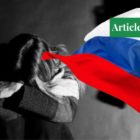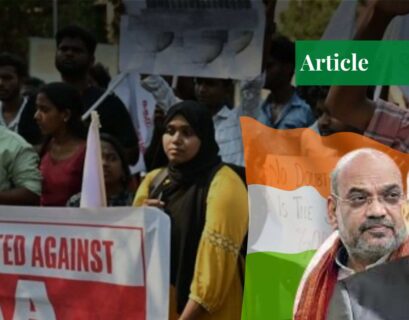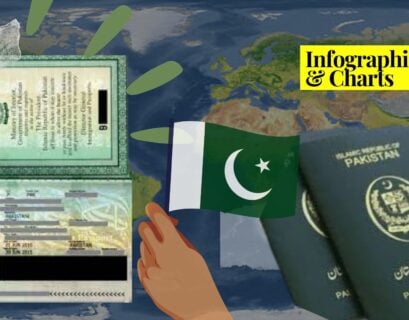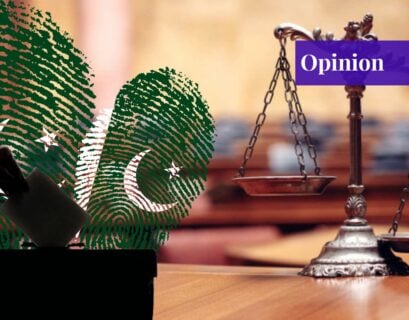Politics and the Press
Pakistan has never been a country recognised for the freedoms and liberties it grants its citizens, but the decade of (relative) democratic success from 2008 to 2018 had led many to hope that things were on the mend. Cynics were quick to remind them that the reasons for the perseverance of democracy were not necessarily because of some internal shifts in the relations and dynamics of Pakistani civil society or the establishment, but perhaps just luck.
That luck has run out, it seems, as Pakistan continues its trend of not allowing a sitting Prime Minister to complete its term. It is, however, the first time that a no-confidence motion has successfully been used to oust one. Despite the termination of the Prime Ministers’ tenures, the PPP government of 2008 and their PML-N government of 2013 managed to complete their terms in office, but the PTI government has effectively been removed from power.
In its place is a new government in the midst of formation, with Shahbaz Sharif as Prime Minister. However, in a development, perhaps unanticipated by the Opposition, an unprecedented amount of public support has arisen for Khan, with “historical protests” recorded in numerous cities of Pakistan on the night of April 10th.
This overflowing show of support for Khan, who wasn’t physically present at any of the gatherings, seems to lend credence to the growing view that – if elections were to be held soon – the PTI party would be voted back into power. Political uncertainty aside, this article intends to focus on another troubling issue.
The Glaring Assault on Press Freedom
Over the past few days, a number of media anchorpersons and hosts have been laid off from their sponsor channels; most notably Imran Riaz Khan (no relation to the former PM) from Samaa News and Maleeha Hashmey from Public News. Whilst Imran Riaz Khan continues to post scathing indictments of the Opposition from his YouTube channel, his removal from a top national news channel like Samaa bodes ill for the state of press freedom in Pakistan.
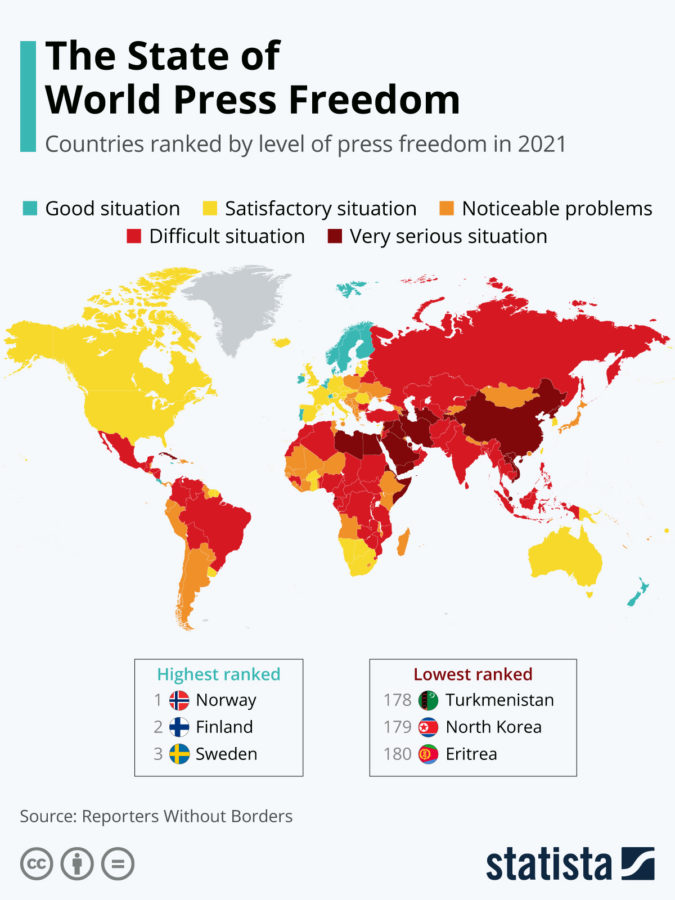
Maleeha Hashmey has not posted any videos on her YouTube channel but has remained active on Twitter, particularly a tweet where she publicised her removal from Public News. What was their crime, one may ask? The most apparent explanation is that the two are pro-Imran Khan and pro-PTI voices in a time when the political arena seems hell-bent on suppressing any and all news about Imran Khan’s successes in recent days.
The giant gatherings in various cities in support of Imran Khan also went virtually unreported by most TV news channels in Pakistan while they were happening on April 11th, with the notable exceptions of ARY and BOL news channels. The removal of anchors and journalists begs the question of how impartial media houses can be, given their ownership.
Samaa News, for example, is owned by Aleem Khan, a former PTI politician who has badly fallen out with the former Prime Minister. Should the state of Pakistan allow media channels and sources to be owned by those holding political offices, given the inherent biases they hold? The dangers run deeper than de-platforming Khan’s supporters.
Stripped of Media Freedom
The home of Dr. Arslan Khalid, the chief person associated with PTI’s digital media, was raided on Sunday, April 10th. Eleven unknown men were involved in the raid, but PTI said that they had expected such an occurrence and so Dr. Khalid had been moved elsewhere. Nevertheless, members of Dr. Khalid’s family were threatened, and electronic devices were stolen from the home.
Furthermore, Imran Riaz Khan alleged that members of the Federal Investigation Agency (FIA) had been tasked with taking him into custody, for crimes unknown to him. If this rumour has any truth to it, it rings like a sinister echo of the case of Iqrar-ul-Hassan, who was recently abducted and tortured by officials of the Investigation Bureau for having exposed corruption.
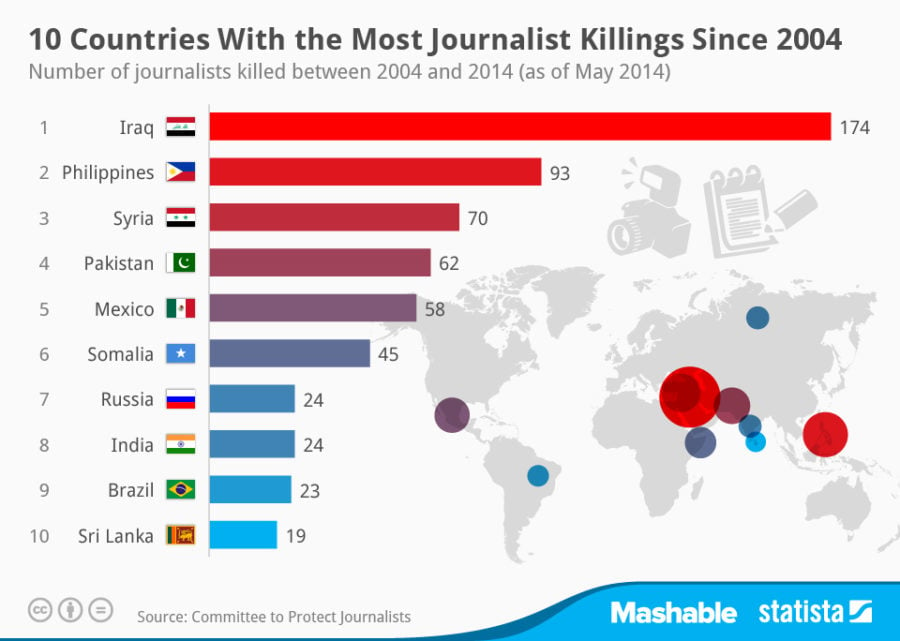
Most news channels and sites in Pakistan did react to and cover the attack on Iqrar-ul-Hassan, but barely any in Pakistan has even mentioned what is happening to the likes of Imran Riaz Khan and Maleeha Hashmey. It might be because of the difference in intensity; on one hand, you have a journalist laid off and on the other, you have a journalist tortured and beaten.
However, it might also be because of the political priorities and situation; reporting on Iqrar-ul-Hassan’s case suited the media houses in their overall attacks against Khan for his failures to protect rights and freedoms, so reporting on the current situation would only undermine the legitimacy of the new government. This is not to say that the Iqrar-ul-Hassan case was, in any way, not a real or serious enough situation.
Regardless of the government or political situation, any attacks on the freedom of speech and press, on the rights and liberties of individuals, must be unequivocally condemned. The government of yesterday was not innocent of these crimes either. Following his reports publicising alleged criminal activities of a PTI member of Parliament, journalist Zahid Shareef Rana was attacked and beaten unconscious by associates of the said MPA on the 27th of March, 2022.
This case also went widely unreported. Such brazen attacks on the liberty and property of individuals are not new to Pakistan, but the continuing suppression of press freedom makes them even more dangerous, with there remaining a very real danger that such cases begin going unreported amidst the political turmoil engulfing the nation.
The Power of Social Media
Social media has come to the rescue of many an oppressed population, with the power to receive news and updates straight from the people involved. Whilst many are quick to point to misinformation, there is no denying that the use of social media has made it even more difficult to silence dissent and protest. The same is the case in Pakistan.
Though most news channels didn’t cover the April 11th protests, they have been so well-documented on social media sites like Twitter and Instagram that they have become hard to ignore. International news agencies like Al-Jazeera have reported on the protests too, using footage uploaded on social media by those involved in and documenting the protests.
Many journalists and anchors have also taken to posting videos on their YouTube channels, circumventing any muzzling they’d be subjected to by their sponsor channels. Imran Riaz Khan is a prime example of the developing situation.
Laid off from Samaa News, he has been posting at least 2 videos a day for the past few days, rallying support for Imran Khan (the former PM, not himself…) and criticising the positions of major media houses on the ongoing events. Almost all of his recent videos have a million views; he has been equally active on Twitter.
The Government Versus the Media
The question on everyone’s minds is; how will this end? The new government that wishes to suppress any positive news concerning Khan is not blind to the role that social media is playing in blocking their objectives. Rumours have already started floating regarding the intention of government agencies to begin prosecuting those posting and sharing content on social media criticising the state and its institutions.
Rumour or not, it is not hard to believe that that is what they want, and will be working towards doing so. But can the state, as powerful as it is, prosecute tens of thousands of people? For that is the strength of those active currently on social media, lambasting the new powers.
“Imported_hakoomat_na-manzoor” (Imported government refused) is currently the highest trending hashtag on Twitter in Pakistan, with over 2 million tweets as of the time of writing, referring to the overwhelming belief among Khan’s supporters that Shahbaz Sharif’s government has come to power atop the back of a foreign conspiracy to topple Khan.
It only remains to be seen now, which forces will prevail. Will traditional media, with all the political clout and backing it holds, be able to overwhelm the increasingly popular and subversive social media, or will individual voices be able to provide vital coverage of that which the government and their affiliates seek to suppress?
If you want to submit your articles, research papers, and book reviews, please check the Submissions page.
The views and opinions expressed in this article/paper are the author’s own and do not necessarily reflect the editorial position of Paradigm Shift.




